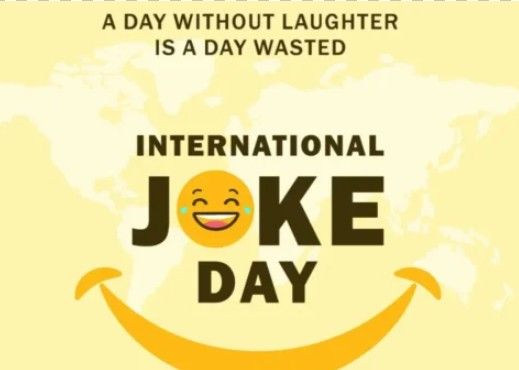
Symbolized by a light-hearted day every July 1, the international community nullifies gravity by sharing jokes and laughter. First set in 2024 by Wayne Reinagel, an American author and graphic designer, to establish integration into the promotion of his joke books and the half-year mark for the year, the day increasingly became a universal opportunity to spread cheer. What was originally a clever publicity scheme became a global reminder that humor-its power to unite, uplift, and heal.
The well-known history of joke-telling goes back many thousands of years into recorded antiquity. Among the earliest traces of recorded jokes would be the ancient Sumerian ones, from approximately 1900 BC, and also a classic Greek joke book called Philogelos from the 4th or 5th century CE. From those ancient flowerings, our quips reveal that humor has always been intertwined with culture-human cultures-if not to do anything else, then out of an instinctive urge toward bonding and merriment. Modern science backs this up by asserting that laughter alleviates stress hormones, enhances immunity, increases blood circulation, and capers about almost as well as our friend next door when we bond socially.
Laughter is said to be good for the heart; jokes are beneficial. Such observations have led researchers to the conclusion that laughing together sets the atmosphere necessary for safety and belongingness, reinforcing community. Apparently shared laughter strengthens interpersonal relations, and indeed in teamwork projects, it eases the way for the creation of positive social linkages. On International Joke Day, these argue-forin the favor of us must not forget-these invisible bridges built of smiles and chuckles.
Come July 1, the celebrations can be as far apart as family gatherings and office bonding. These are some ways to get involved:
Read more: International Asteroid Day: Understanding the Importance of Space Rock Awareness
Days Uniting Cultural Diversity
Every culture comprises humor-from one-liners in Britain to political satire in Eastern Europe. On International Joke Day, we will celebrate this fine diversity. Schools and families can practice playful contrasts: what jokes may please one culture may baffle another. But through the thematic content lies our mutual joy of humor-a universal language, louder than words.
Read more: Mental Health in a Hyper-Digital World: How to Cope and Thrive Amidst 24/7 Connectivity and Digital Overload
International Joke Day should not be viewed as strictly a one-day event-wake up time! Laughter relates to mental health, stress relief, and social bonding. As Robin Williams wisely observed, laughter is what keeps us alive and connected. This day implores all of us to make a conscious effort to keep smiling with glee-for a lifetime.